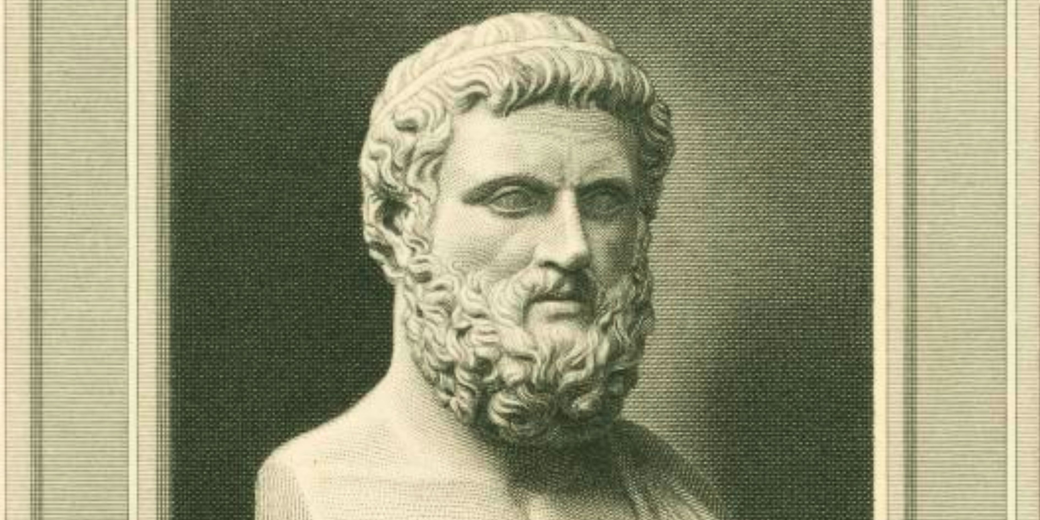Solon the Lawgiver: the man behind the Athenian social revolution

Solon, a prominent Athenian statesman, lawmaker, and poet, played an essential role in the development of democracy in Ancient Greece.
Born around 630 BCE, he lived during a time of significant political and social unrest in Athens. Solon's astute political maneuvering and reforms laid the groundwork for the establishment of democracy, and he is remembered as one of the Seven Sages of Greece.
Below, we will delve into the life and legacy of Solon, exploring his key contributions to Athenian society and the broader impact of his work on Western civilization.
Early Life and Career
Born into a wealthy Athenian family, Solon was well-educated and belonged to the elite circles of society.
His early life was marked by his interest in poetry and philosophy, through which he often conveyed his thoughts on politics and social issues.
Despite his privileged upbringing, Solon was deeply concerned about the widespread social and economic inequalities plaguing Athens.
Athenian Society in Crisis
During the 7th century BCE, Athens was facing a severe economic crisis, fueled by widespread debt bondage, unequal land distribution, and the exploitation of the lower classes by the aristocracy.
As tensions mounted, the Athenians sought a leader who could bring about social and political stability.
Solon, known for his wisdom, fairness, and diplomatic skills, emerged as the ideal candidate to address the mounting crisis.

Solon's Reforms
In 594 BCE, Solon was appointed as the Archon, the chief magistrate of Athens, and was tasked with implementing crucial reforms to address the social and economic issues.
His sweeping reforms, known as the Seisachtheia or "Shaking off of Burdens," transformed Athenian society and laid the foundation for the democratic system that would later emerge.
Solon's key reforms included:
Debt Relief:
Solon cancelled all debts, which freed numerous Athenians from debt bondage and restored confiscated lands to their original owners.
Constitutional Reforms:
He restructured the political system, giving all male citizens the right to participate in the Athenian Assembly and law courts, irrespective of their wealth or social status.
Economic Reforms:
Solon encouraged trade, promoted the growth of industries, and introduced standardized coinage, which helped revive the Athenian economy.
Legal Reforms:
He instituted a new legal code, replacing the draconian laws of Draco, and established a more equitable legal system.
Solon's travels after Athens
After implementing his reforms in Athens, Solon left the city for a self-imposed period of exile.
The exact reasons for his departure remain unclear, but it is believed that he left to avoid potential unrest or backlash as his reforms took effect.
During his exile, Solon traveled extensively, visiting places such as Egypt, Cyprus, and Lydia.
One notable encounter during Solon's travels was with the Lydian King Croesus in his capital city, Sardis.
Their conversation, preserved by the ancient Greek historian Herodotus, is a famous tale of wisdom and hubris.
In their exchange, Croesus asked Solon who the happiest person was, expecting Solon to praise his immense wealth and power.
However, Solon responded by highlighting the fates of three individuals who had led virtuous lives and died with honor.
This answer served as a reminder that true happiness and prosperity should not be judged by wealth and power alone, but by one's actions and character.
His long-term impacts
Though not all of Solon's reforms were successful, and some were even reversed after his death, his work left a lasting impact on Athenian society and the evolution of democracy.
His reforms laid the groundwork for the later democratic reforms of Cleisthenes, which led to the birth of the Athenian democracy we know today.
Solon's ideas on governance, social justice, and the rule of law have resonated throughout the centuries, influencing not only the development of democratic principles in ancient Greece but also shaping the foundations of modern Western political thought.
Solon's legacy as a lawmaker, statesman, and poet continues to inspire and inform our understanding of democracy and social justice.
By recognizing the importance of political inclusiveness and the rule of law, Solon's work serves as a reminder of the essential principles that underpin democratic societies today.
What do you need help with?
Download ready-to-use digital learning resources
Copyright © History Skills 2014-2024.
Contact via email
With the exception of links to external sites, some historical sources and extracts from specific publications, all content on this website is copyrighted by History Skills. This content may not be copied, republished or redistributed without written permission from the website creator. Please use the Contact page to obtain relevant permission.





